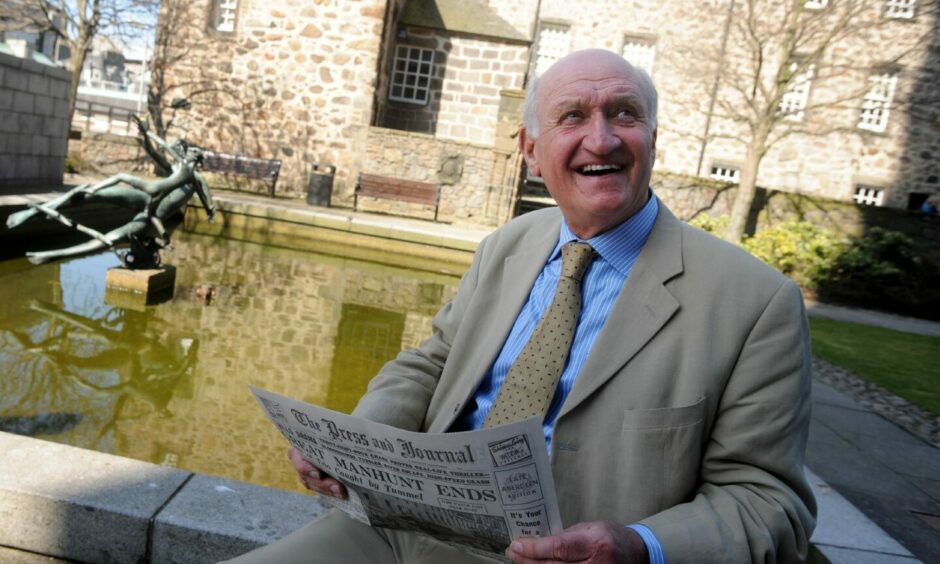
One of the strongest array of teams which had ever been assembled in a European Cup Winners’ Cup campaign started the competition in 1982.
Real Madrid, Barcelona, Inter Milan, Bayern Munich, Paris St Germain, Tottenham, Dynamo Dresden and Austria Vienna were among the big guns in the draw.
Alex Ferguson said: “I was convinced that we would get one of those big teams in the draw early on.
“Instead we got a piece of luck.
“When you saw the list of names in the competition it became clear that the Cup Winners’ Cup was a much harder tournament than the other two (European Cup and Uefa Cup).”
Miller could have gone to Old Trafford
Aberdeen’s European campaign had received a timely boost with skipper Willie Miller signing a new two-year deal following reports linking him with Manchester United.
Ferguson’s young side defeated Sion, Dinamo Tirana, Lech Poznan, German giants Bayern Munich and Waterschei to reach the final against Real Madrid on May 11 1983.
With Real Madrid looming in Gothenburg, the league fixture against Kilmarnock was brought forward by two days to a Thursday to give the Dons more time to prepare.
The unusual kick-off ensured there was only a crowd of 12,000 at Pittodrie to bid farewell to Aberdeen and they jetted off to Sweden following a 5-0 victory.
Aberdeen supporters were poised for the greatest adventure in their sporting lives.
On the eve of the final, Jack Webster urged readers of the Evening Express to throw their native, north-east caution to the wind and savour the moment, win or lose.
The writer and broadcaster was the Scottish equivalent of Michael Parkinson having spent a career interviewing some of the world’s biggest stars from Ali to Chaplin.
Webster recalled his experience in 2008
Webster was Aberdeen-daft.
He wrote the definitive club history for the 75th anniversary in 1978 and was there in Gothenburg in 1983 when Aberdeen rendered that book out of date!
Webster recalled in 2008: “Just to be there was wonderful.
“Upwards of 12,000 of us were on our way, 50 plane-loads augmented by motor-car and ferry-boat.
“Aberdeen Airport had never seen anything like it as the Red Army took off via North Sea oilfields to skim the forests of Scandinavia and take total possession of glorious Gothenburg.
“The folk of Madrid thought it so much of a formality that only small numbers bothered to come.
Grown men of Aberdeen granite stood on the slopes of Ullevi, the rain rolling down their cheeks, except that it was not all rain.”
“So we had the Swedes on our side, and Gothenburg belonged to Aberdeen.
“From the day before the match, I have a snapshot of wandering across the pitch with fellow journalist Hugh McIlvanney, Dons vice-chairman Chris Anderson and that great legend of football, Jock Stein, whose invitation from manager Alex Ferguson was a master-stroke of psychology.
“For this was the moment.
“Quietly, there was a belief that the biggest upset in European football history might well be on the cards. It had all begun with the arrival of Fergie in the summer of 1978.”
The storm clouds gathered the next day and now the heavens were opening as the Dons’ bus approached the Ullevi Stadium and the players filed into the dressing-room.
Webster continued: “Gordon Strachan, always a great observer, told me later of the hush that descended as the players went into their own thoughts, their own prayers, and just looked at each other.
“He was looking at the young lads, Neale Cooper, Neil Simpson, Eric Black and John Hewitt.
“Fergie gave his final words. It was now up to them. From the utter silence, there erupted a shouting and screaming, like a bunch of schoolboys. The rest is indeed history.
“By the time Peter Weir had instigated that magnificent run on the left, chipping the ball to Mark McGhee, who sent the perfect cross for John Hewitt to head home the winner, a world-wide television audience of 800 million knew, if they didn’t know before, that a city called Aberdeen existed.
“Grown men of Aberdeen granite stood on the slopes of Ullevi, the rain rolling down their cheeks, except that it was not all rain.
“For once, they could let loose the pent-up emotions that are hard for a north-east man to release.
“In days of greater patience, their fathers and grandfathers had lived through the first 43 years of Dons’ history without a single trophy gained.
“Finally, on May 11 1946, Frank Dunlop and his men beat Rangers at Hampden to bring home the Scottish League Cup.
“We should have checked the omens.
“Here we were, on that very same date, attaining the unimaginable pinnacle of experience. This was their finest hour.”
Jack Webster wrote about ‘day of incomparable ecstasy’ after Gothenburg
Back at the team’s hotel the Dons filed through to the applause of Swedish diners.
Next day, the team returned to 100,000 welcomes, all the way from the airport, along Anderson Drive and down Albyn Place to Union Street.
Webster mused: “As the celebrations reached Pittodrie, I paused to reflect – and suffered a pang of anti-climax.
“Would we ever see a moment like this again?
“Unlikely.
“Then again, if we had had the choice, would we have preferred to miss out on that day of incomparable ecstasy?
“Twenty-five years later, I feel exactly the same.
“Gothenburg is not an albatross, as some would have us believe.
“It is an inspiration to future generations to dream their dreams.
“And to know that, in the mysterious workings of fate, they can actually come true.”
Webster died in Glasgow on March 17 2020 at the age of 88.
He was pre-deceased by his wife Eden and is survived by his three sons, Geoff, Keith, and Martin, all of whom followed him into journalism.
He never forgot that day of incomparable ecstasy in 1983.
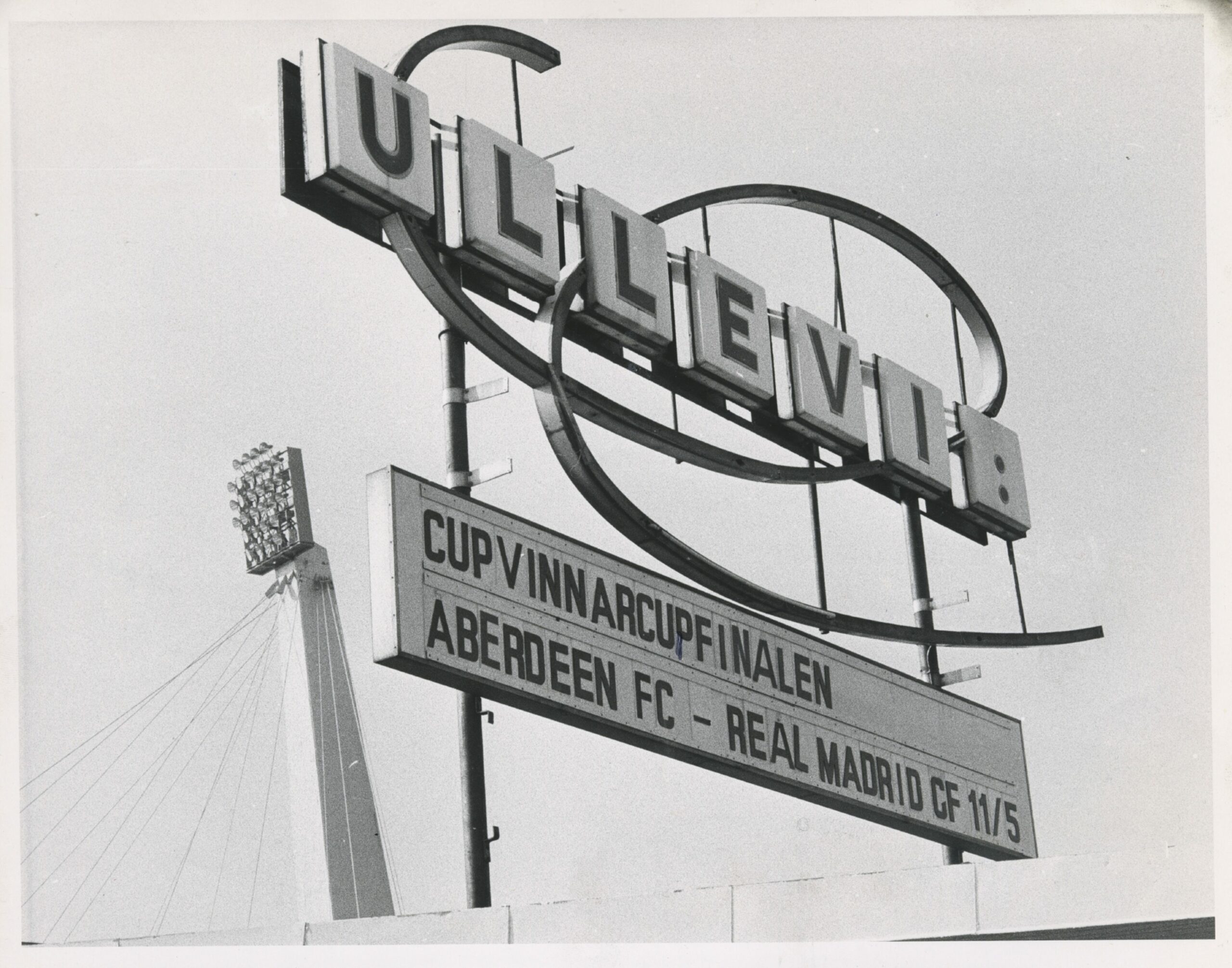
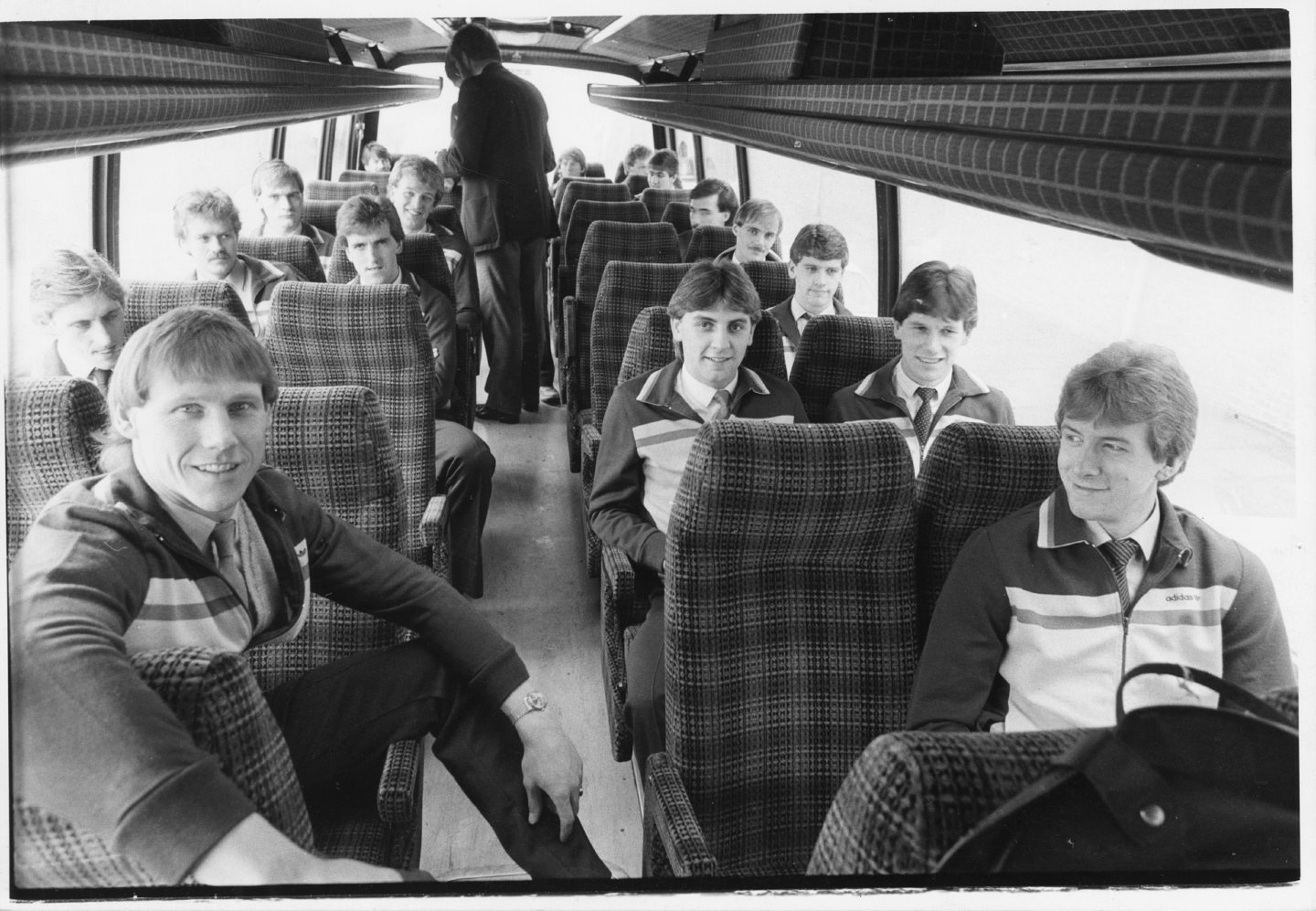

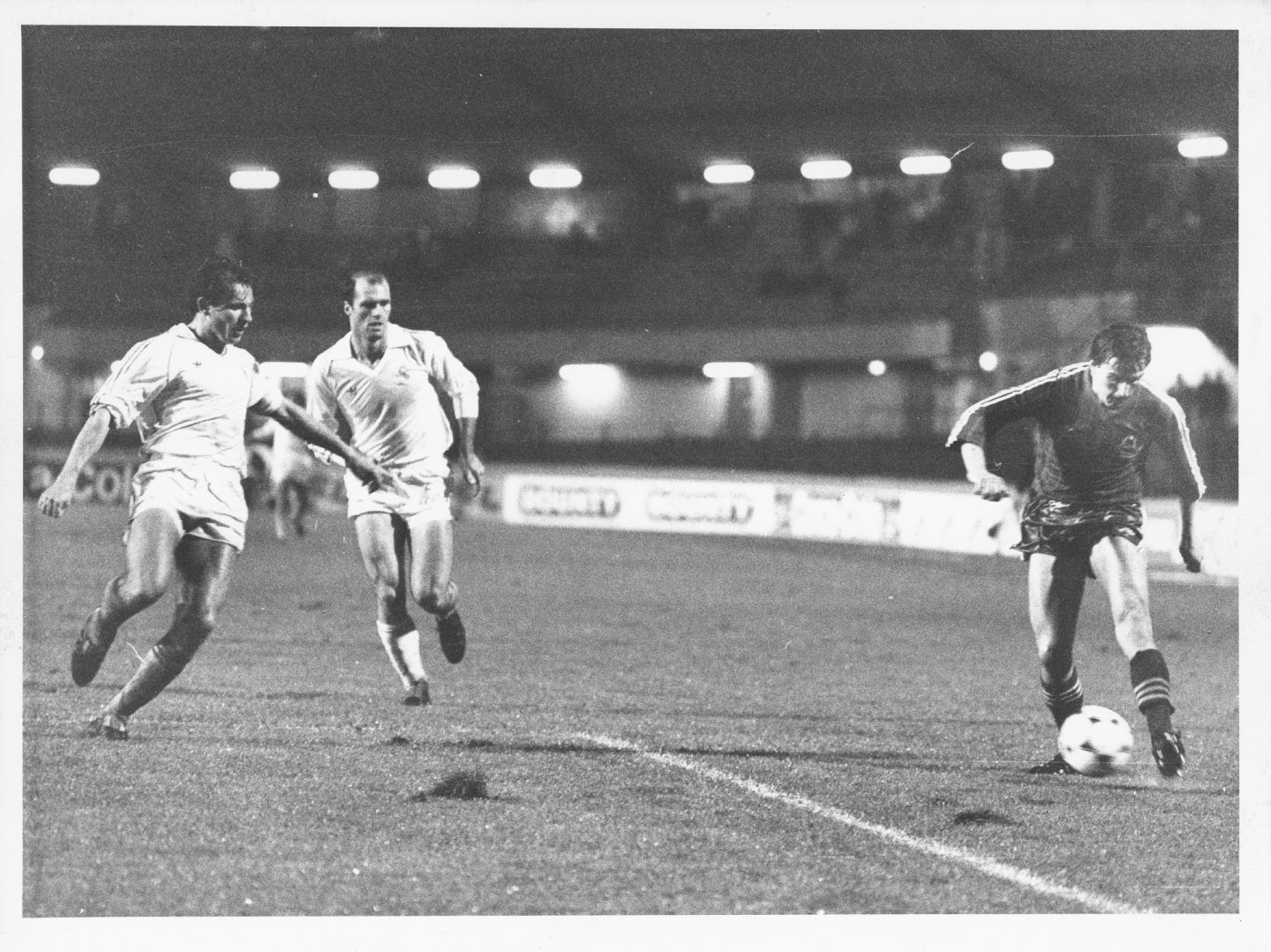
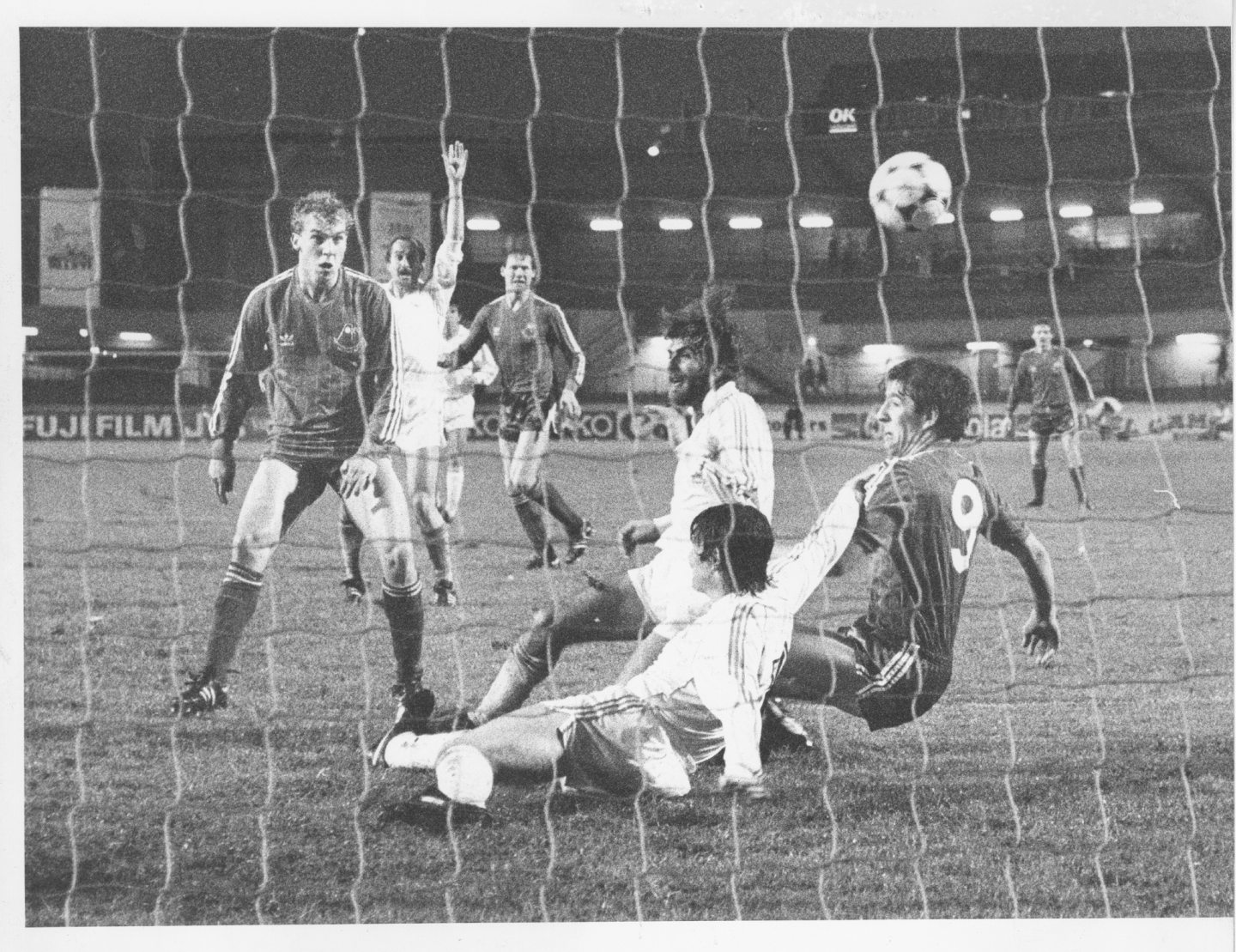
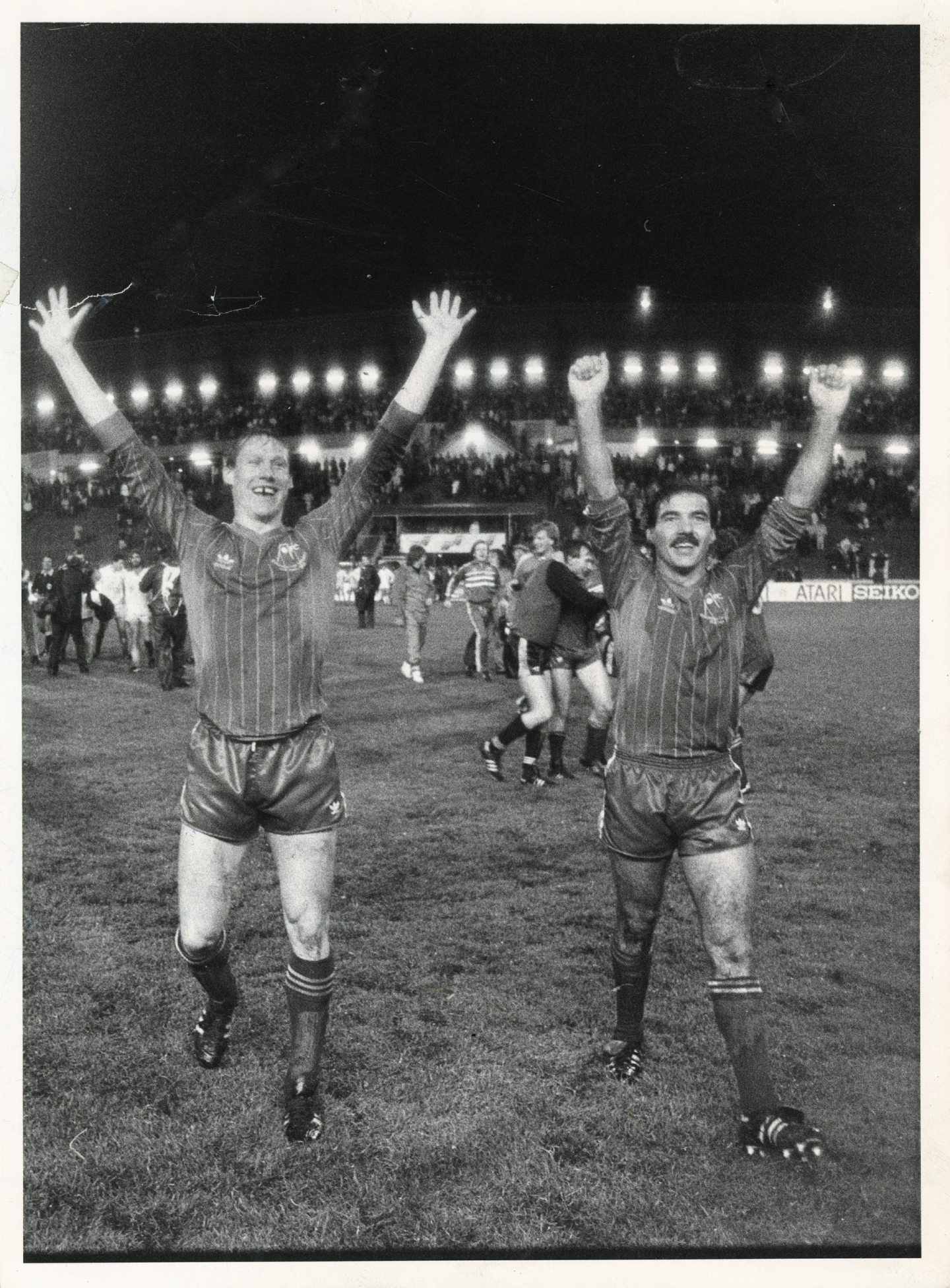
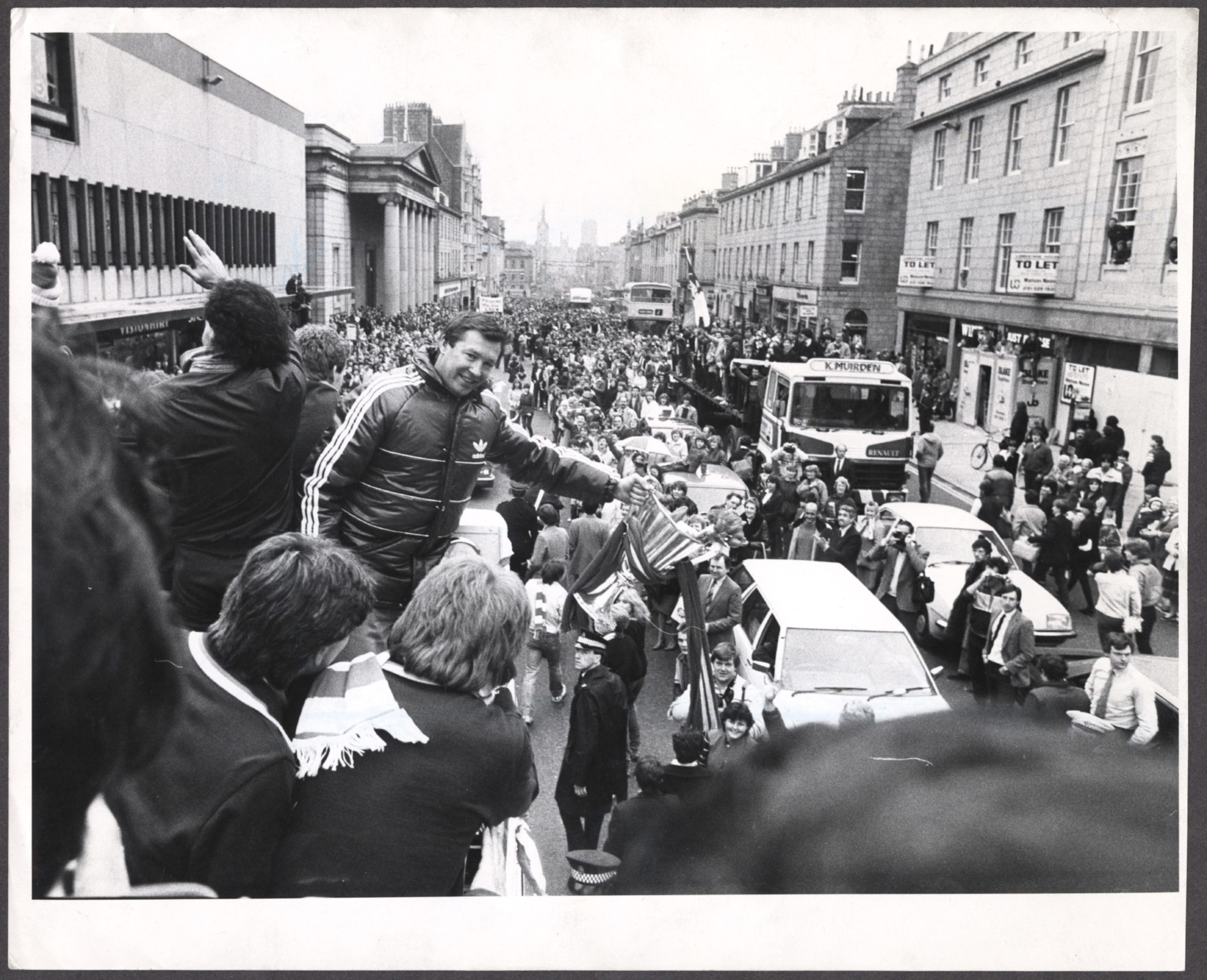
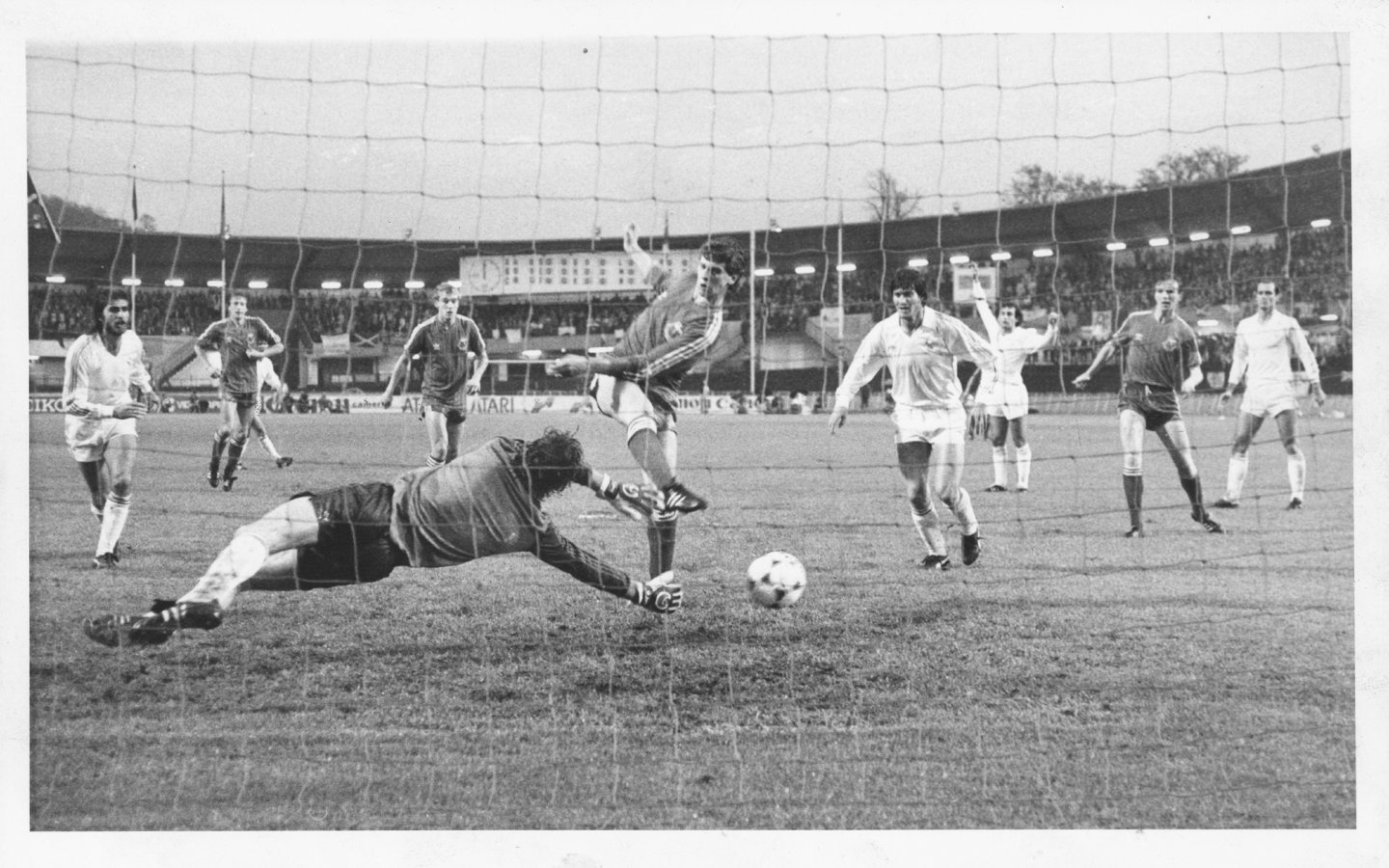
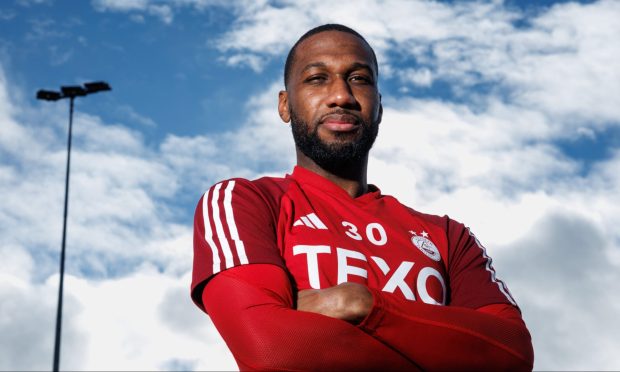
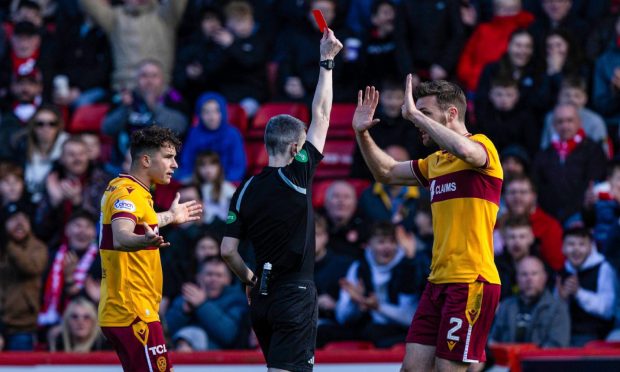
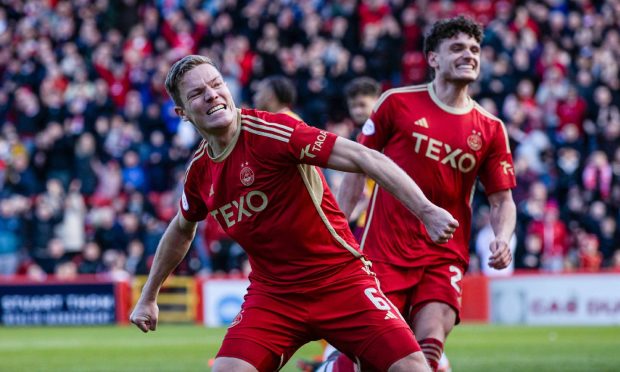
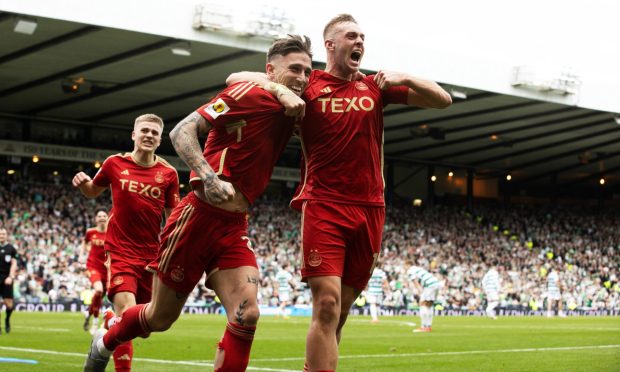
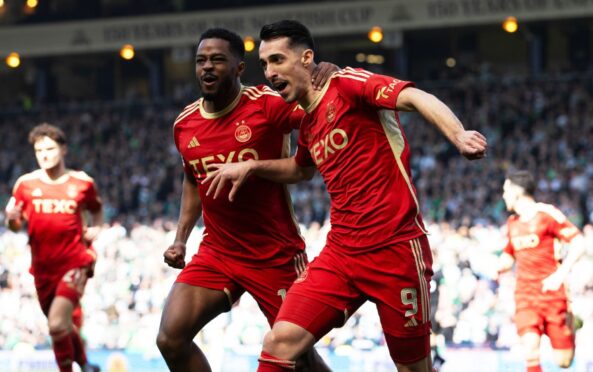
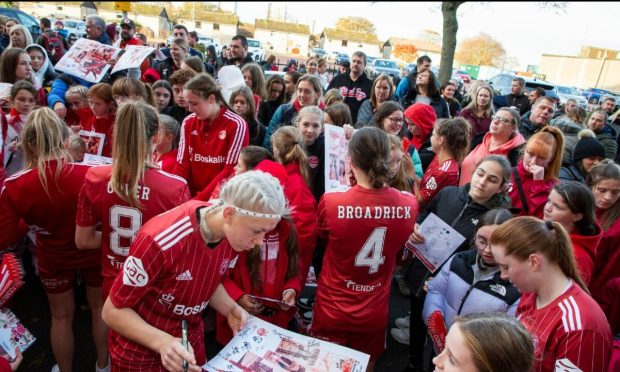
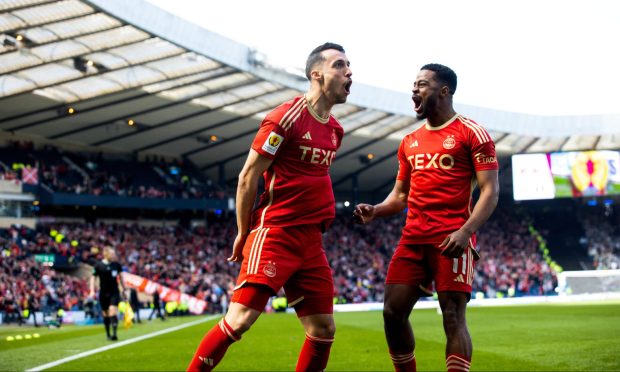
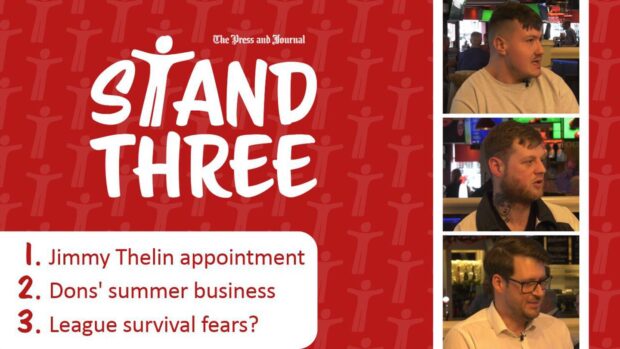
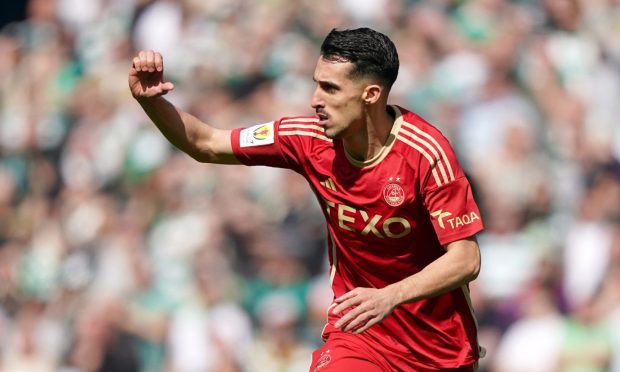
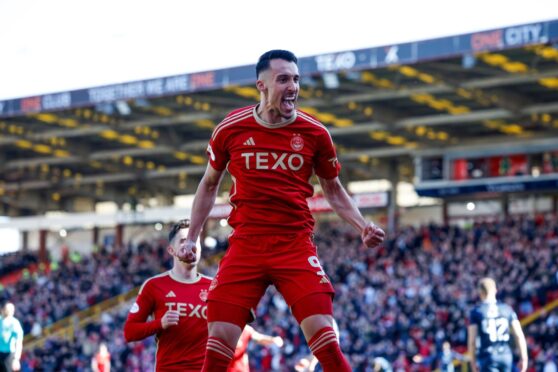
Conversation